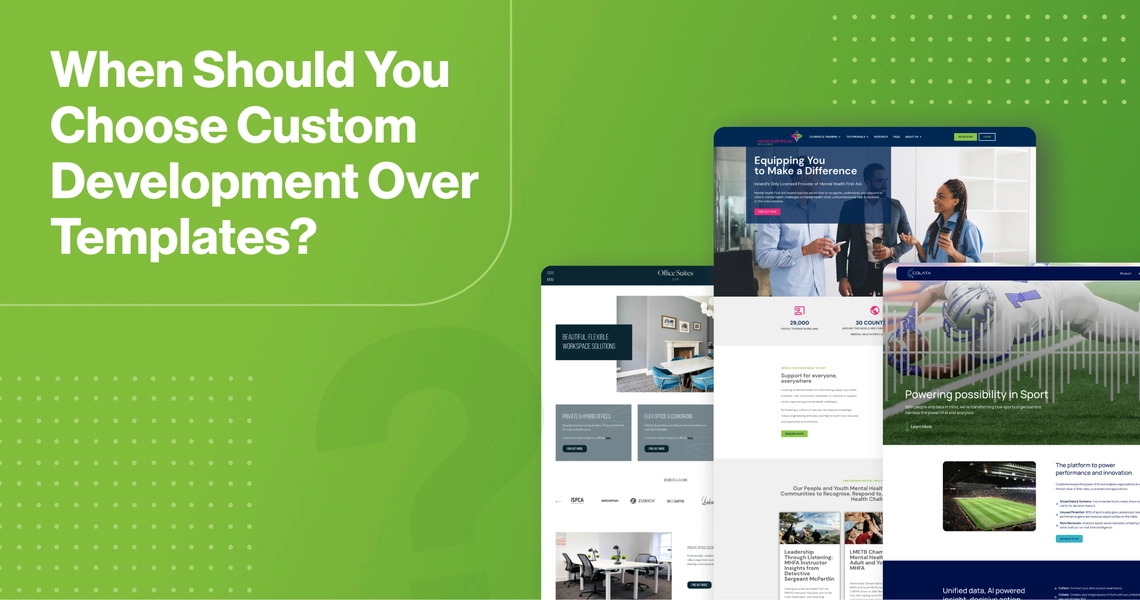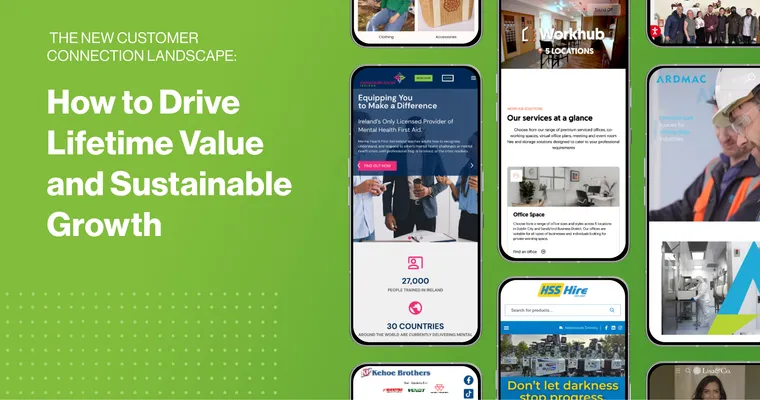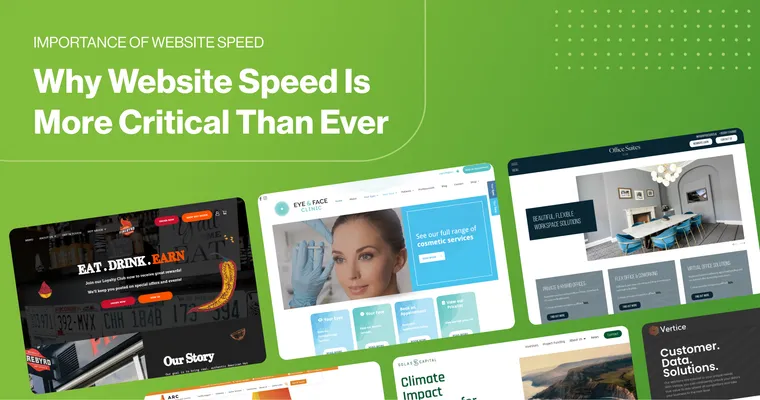Summary
Choosing between a custom-built website and a template design is one of the most important decisions for any business investing in its online presence. Templates offer speed and affordability, while custom development provides flexibility, scalability, and long-term ROI. This post explores when businesses should consider custom development over templates, helping you decide what’s right for your goals.
Why the Decision Matters
Your website is often your first point of contact with customers. The wrong choice at the start can lead to limitations in functionality, security, and growth potential.
When Templates Work Well
Templates can be a smart choice for:
- Start-ups on a tight budget – quick, affordable setup.
- Simple brochure websites – minimal functionality needs.
- Temporary or short-term projects – such as event sites.
- Businesses testing an idea – without heavy upfront investment.
Templates are usually fast to launch but often come with compromises in flexibility, performance, and unique branding.
When Custom Development is the Better Option
Custom development should be considered when:
- You need specific functionality – e.g., membership sites, eCommerce with complex rules, or integrations.
- Brand identity is a priority – a unique design that stands out.
- You expect high traffic or growth – scalable, performance-optimised builds.
- Security is critical – tailored solutions with fewer vulnerabilities.
- You want long-term ROI – instead of hitting limitations and needing a rebuild later.
Key Benefits of Custom Development
- Flexibility: Tailored to your business needs, not restricted by template constraints.
- Performance: Faster load times, cleaner code, and better SEO potential.
- Scalability: Future-proof and built to grow with your business.
- Integration-ready: Works with CRMs, APIs, payment systems, and third-party apps.
- Stronger Branding: A design that reflects your identity rather than a pre-set layout.
AI & SEO Optimisation Angle
In 2025 and beyond, AI-driven search is prioritising unique, authoritative, and user-focused websites. Template sites often look and behave the same, making it harder to stand out in AI-powered rankings.
- Custom sites allow semantic structuring of content, making them more discoverable.
- Optimised speed and UX are key ranking factors in Google’s AI-driven search.
- Future adaptability ensures your site can keep up with new AI-driven search updates.
FAQs
Q1: Are templates always a bad idea?
No. Templates are cost-effective and suitable for smaller projects, startups, or testing ideas.
Q2: How much more expensive is custom development?
It depends on scope. While custom projects cost more upfront, they usually save money long-term by avoiding rebuilds or patchwork fixes.
Q3: Will a custom website rank better in search engines?
Yes, usually. Custom sites can be optimised for speed, structure, and SEO – areas where template sites often fall short.
Q4: How long does custom development take compared to templates?
Templates can be live in days or weeks, while custom builds often take several weeks to months, depending on complexity.
Q5: Is custom development future-proof?
Yes. A custom website is designed to grow with your business, adapt to new technology, and integrate with future tools.



